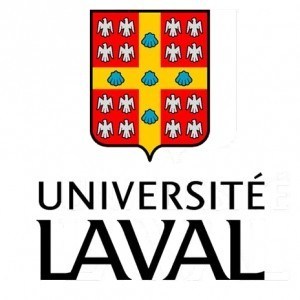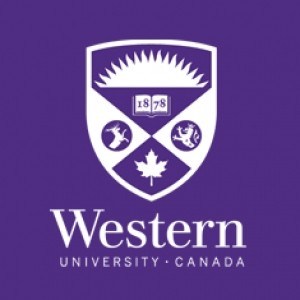Photos of university / #ulaval
The Bachelor of Science in Microbiology at Laval University offers students a comprehensive curriculum designed to provide a thorough understanding of microorganisms and their critical roles in health, industry, and the environment. The program combines foundational biological sciences with specialized courses in microbiology, biotechnology, immunology, and molecular biology, equipping graduates with the knowledge and skills necessary to pursue careers in research, healthcare, pharmaceuticals, and environmental sciences. Students will explore the structure, function, and diversity of bacteria, viruses, fungi, and protozoa, as well as their interactions with hosts and ecosystems. The program emphasizes laboratory work, enabling students to develop practical skills in microbial techniques, laboratory management, and data analysis. Through research projects and internships, students gain hands-on experience in diagnostic microbiology, vaccine development, and bioremediation, fostering critical thinking and problem-solving abilities. Laval University's program also promotes understanding of the ethical, safety, and regulatory aspects related to microbiology practices. Graduates are prepared for further study or entry into the workforce, contributing to advancements in healthcare, environmental protection, and biotechnological innovation. The program's multidisciplinary approach ensures students are well-versed in various scientific disciplines, reflecting the dynamic nature of microbiology. With faculty who are experts in their fields, students benefit from mentorship, cutting-edge research opportunities, and access to state-of-the-art laboratories. This program aims to produce versatile professionals capable of addressing complex biological challenges and making innovative contributions to society.
The Bachelor of Science in Microbiology at Laval University offers students an in-depth understanding of the microscopic organisms that impact our world. This comprehensive program combines fundamental principles of biology, chemistry, and microbiology to equip students with the knowledge and skills necessary to pursue careers in healthcare, research, industry, and environmental sciences. Throughout the program, students explore the structure, function, and genetics of microorganisms, including bacteria, viruses, fungi, and parasites. They learn laboratory techniques essential for microbiological analysis, such as culturing, microscopy, molecular diagnostics, and bioinformatics. Emphasis is placed on understanding microbial interactions with humans, animals, plants, and the environment, as well as their roles in health, disease, and biotechnology. The curriculum includes courses on immunology, infectious diseases, microbial ecology, and antimicrobial resistance, providing a well-rounded perspective on microbiology's role in public health and safety. Students also develop critical thinking and research skills through practical laboratory work and independent projects. The program encourages an interdisciplinary approach, integrating concepts from molecular biology, biochemistry, and genetics to prepare graduates for diverse scientific careers. Additionally, internships and cooperative education opportunities are available, allowing students to gain real-world experience in industry laboratories, research institutions, or healthcare settings. Graduates of this program are well-equipped to contribute to advancements in medicine, pharmaceuticals, environmental management, and agricultural sciences. They are prepared to pursue further studies or enter the workforce with a solid foundation in microbiological sciences and research methodologies. The Laval University Bachelor of Science in Microbiology aims to foster innovative thinking, scientific rigor, and a commitment to improving health and environmental outcomes through microbiological sciences.
In order to enroll in the Microbiology program at Laval University, applicants are generally required to have completed a secondary education diploma or its equivalent, with a strong emphasis on science subjects such as biology and chemistry. Prospective students must submit official transcripts demonstrating their academic achievement, along with proof of proficiency in French and/or English, depending on the language of instruction. For international applicants, additional documentation such as language proficiency test scores (e.g., TOEFL or IELTS) may be required. The program may also necessitate a personal statement or motivation letter explaining the applicant’s interests and goals related to microbiology, as well as letters of recommendation from academic referees who can attest to the student’s suitability for advanced scientific study.
Admission may be contingent upon meeting a minimum grade point average (GPA) threshold established by Laval University, which typically reflects strong academic performance in relevant high school courses. Some prerequisites in high school include courses in advanced mathematics, physics, biology, and chemistry. Transfer students or those with college-level credits must submit official transcripts for evaluation, and their previous coursework will be assessed for equivalency to the program’s prerequisites. In special cases, applicants may be invited for an interview or undergo additional assessments to verify their motivation and suitability for the field of microbiology.
The program itself is designed to combine theoretical coursework with practical laboratory training and research experience. Students are expected to complete a series of mandatory courses covering microbiological techniques, molecular biology, immunology, pathogenic microorganisms, and microbial ecology. Electives may include specialized topics such as industrial microbiology, medical microbiology, and environmental microbiology. To graduate, students are generally required to complete a capstone project or research internship, which involves designing and conducting experiments under faculty supervision, culminating in a thesis or research report.
Students must also fulfill any specific credit requirements outlined by the university, which typically include a combination of core courses, electives, and a final research project, totaling approximately 120 credits for a Bachelor's degree. During their studies, students are encouraged to participate in workshops, seminars, and summer internships to enhance their practical skills and professional development. The program may also promote opportunities for students to attend scientific conferences or publish research findings. Overall, the admission and program requirements are designed to ensure students have a solid foundation in science and are prepared for careers in research, healthcare, industry, or graduate studies in microbiology or related fields.
The Microbiology undergraduate program at Laval University offers various financing options to support students throughout their studies. Students enrolling in the programme can benefit from a range of financial aid opportunities, including government grants, bursaries, scholarships, and loan programs. The university provides dedicated financial assistance services to help students identify and apply for these support mechanisms. Laval University’s financial aid office offers personalized guidance to determine eligibility and navigate the application processes for federal and provincial financial assistance programs, such as the Canadian Student Loan Program and the Quebec Loan and Bursary Program. In addition to governmental aid, the university offers numerous internal scholarships specifically for undergraduates in science programs, including microbiology. These scholarships are based on academic merit, research interests, or financial need. Students are encouraged to regularly check the university's scholarship portal and apply for awards for which they qualify. Furthermore, many students supplement their funding through part-time work arranged through the university's job placement services or through research assistant positions related to microbiology faculty projects. Laval University also promotes various external scholarships provided by private foundations and organizations dedicated to supporting scientific education. International students have access to similar funding opportunities, though some restrictions may apply, and they are advised to consult the university’s international students’ financial aid guide. The program’s structure and duration allow students to plan and seek multiple sources of financing, ensuring reduced financial stress and enabling focus on academic and research pursuits. Additionally, students are encouraged to engage with student associations and professional organizations within the microbiology field that frequently offer fellowships and conference awards. Overall, Laval University strives to make higher education accessible by providing extensive financial support options for microbiology students, fostering an environment where academic excellence and research innovation can thrive without undue financial burden.
The Microbiology program at Laval University offers students a comprehensive education in the scientific study of microorganisms, including bacteria, viruses, fungi, and protozoa. Designed to prepare graduates for careers in research, healthcare, environmental management, and industries such as pharmaceuticals and biotechnology, the program emphasizes both theoretical knowledge and practical skills. Students begin with foundational courses in cell biology, biochemistry, and microbiological techniques before advancing to specialized topics such as microbial genetics, immunology, virology, and molecular microbiology.
Throughout the program, students engage in laboratory-based learning to develop competencies in microbiological analysis, sterility techniques, and diagnostic procedures. Practical experience is provided through laboratory work, internships, and research projects, which enable students to apply their knowledge to real-world problems. The curriculum also integrates courses in epidemiology, bioinformatics, and microbiological ethics, reflecting the multidisciplinary nature of the field.
Research opportunities are available within the university’s active microbiology and biomedical research centers, allowing students to collaborate with faculty on cutting-edge projects. Laval University promotes an environment of scientific inquiry and innovation, fostering skills such as critical thinking, data analysis, and scientific communication.
The program is typically designed to last three to four years for undergraduate degrees and may include options for specialization or research training. Graduates of the Microbiology program are well-equipped to pursue professional careers in microbiology laboratories, public health agencies, environmental consultancies, or to continue their studies in graduate or postgraduate research programs. Overall, Laval University's Microbiology program aims to produce highly competent scientists capable of contributing to advances in health sciences, environmental protection, and biotechnological innovation.



